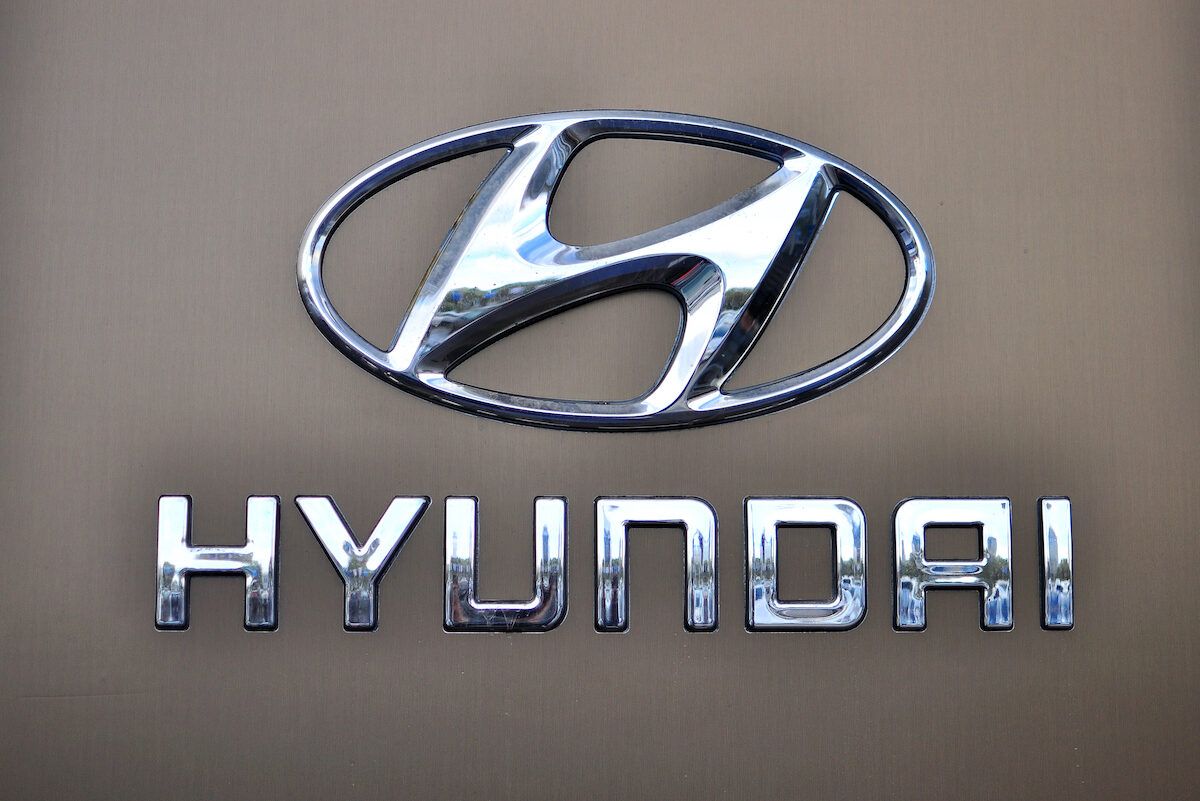
Update:
- A judge dismissed a class action lawsuit filed by a group of vehicle owners against Hyundai Motor Co. in a California federal court.
- The class action lawsuit claimed a number of Hyundai and Kia model vehicles contained an engine defect that caused them to use an excessive amount of oil.
- The vehicle owners argued the alleged defect, in addition to costing them money for the excess oil, caused the vehicles to stall and eventually fail.
- Court approval of the dismissal was not required as the class had not been certified nor proposed to be certified for purposes of a settlement, according to court documents.
Hyundai excessive oil consumption class action lawsuit overview:
- Who: A group of Hyundai and Kia vehicle owners are suing Hyundai Motor Co.
- Why: The drivers allege numerous models of Hyundai and Kia vehicles are equipped with defective engines that use excessive amounts of oil, stall and eventually fail.
- Where: The lawsuit was filed in a California federal court.
(April 20, 2022)
Hyundai makes numerous models of Hyundai and Kia brand vehicles with defective engines that use excessive amounts of oil, costing their owners huge sums of money, a new class action lawsuit alleges.
On Apr. 12, eight owners of Hyundai and Kia brand vehicles filed a class action lawsuit against Hyundai Motor Co. in a California federal court, alleging violations of federal warranty laws.
The Hyundai excessive oil consumption lawsuit alleges that numerous models of the automaker’s vehicles are equipped with defective Nu, Gamma, Theta, Lambda and Kappa engines.
The defective engines allegedly use excessive amounts of oil, stall and eventually fail. The drivers say Hyundai should have issued a recall for the vehicles a long time ago but hasn’t.
As a result, thousands of Hyundai and Kia owners and lessees have allegedly been forced to constantly check the oil levels, and oil must be added to the engines more frequently than even the owner’s manuals recommend, Car Complaints reports.
The engine issue has flow-on effects like reduction in engine lubrication due to crankshaft submersion and gaskets and seals damage, which leads to oil leaks.
The plaintiffs also claim that oil in their vehicles migrates to places where it shouldn’t be, damaging the combustion and exhaust systems.
This allegedly causes “abnormal wear of engine parts, oversaturation of carbon and deposits of oil sludge, ultimately requiring a costly engine rebuild or replacement.”
Automaker should honor warranty claims outside terms, Hyundai class action says
The plaintiffs allege that Hyundai should honor customers’ warranty claims even when the warranties have expired.
According to the lawsuit, Hyundai can’t adequately repair the oil consumption problems and doesn’t offer any reimbursement for out-of-pocket costs caused by the issue.
The class action states customers must suffer through long wait times for replacement parts, “and in most cases do not receive required engine replacements.”
The cars with the allegedly faulty engines include the 2012-2020 Hyundai Elantra, 2009-2018 Hyundai Genesis Coupe, 2019-2021 Hyundai Kona, 2020-2021 Hyundai Palisade, 2010-2012 and 2015-2021 Hyundai Santa Fe, 2009-2010 and 2015-2021 Hyundai Sonata, 2011–2021 Hyundai Sonata Hybrid, 2010-2013 and 2015-2021 Hyundai Tucson, 2011-2021 Hyundai Veloster, 2020-2021 Hyundai Venue, 2010-2021 Kia Forte, 2017-2020 Kia Niro, 2011-2020 Kia Optima and Optima Hybrid, 2012-2021 Kia Rio, 2011-2020 Kia Sorento, 2012-2021 Kia Soul, 2011-2020 Kia Sportage, 2018-2021 Kia Stinger and 2022 Kia K5.
Meanwhile, Hyundai has expanded its recall of vehicles with an exploding seat belt part issue that has caused multiple injuries to include 6,240 of its 2021-2022 Elantra and 2020 Accent vehicles.
The plaintiffs are represented by Nye, Stirling, Hale & Miller LLP, Sauder Schelkopf LLC and Walsh, PLLC.
The Hyundai Oil Consumption Lawsuit is Cho, et al., v. Hyundai Motor Company, LTD., et al. in the U.S. District Court for the Central District of California.
Are you one of the drivers affected by an allegedly faulty Hyundai engine? Let us know in the comments!
Don’t Miss Out!
Check out our list of Class Action Lawsuits and Class Action Settlements you may qualify to join!
Read About More Class Action Lawsuits & Class Action Settlements:















3,223 thoughts onHyundai class action over excessive oil consumption dismissed
I have a 2017 Hyundai Santa Fe sport and I taking my vehicle to the dealer over five times about no oil in the engine all oil changes done every 3 thousand miles about by dealer one oil change dealership did not put oil back in the engine they did test and noted to us that nothing is wrong and they will not fix the problem and also tryed to say they have no record of us at there dealership they tryed to cover everything up looking for attorneys
I have a 2017 Hyundai Sonata, and it ran great until about 60K miles, then started burning oil. It was gradual at first, and within 1 year of noticing the oil consumption, and having it back at the dealer multiple occasions, I am adding 3-4 quarts of oil a month. The dealer advised that it’s not covered under warranty due to being 2nd owner, and have replace multiple parts that they said was the issue, at the amount of nearly $2500, and it’s only getting worse. I will never buy another Hyundai.
I own a 2017 Hyundai Tucson Sport and have been back and forth regarding the excessive oil consumption with the dealer now for the past 3 months. Checked 3 times at 1000 miles.
Please add me
I have a 2018 Hyundia Sonata Sport 2.4 engine. I am at 80k miles and I have had been adding 1 quart of oil less than 1000 miles at a time. It’s been going since around 70k miles.
We changed the PCV valve which seemed to help temporarily but after 3 weeks, I am low 2 quarts
2017 Hyundai Tucson using excessive oil, heading to shop.
I have Hyundai Santa Fe sport 2017. Bought it last year. I have to change oil every 2 month….. I am a student I don’t have this money ((((
Trade it in and cut your loss now. I’m telling you, you’ll end up spending more. Sorry this happened to you. College alone is hard enough.
I have a 2019 Tucson with 181,000 miles . I called Hyandai at 125,000 miles and was told at that time with that many miles it would start using oil. Now I put in 6-7 quarts of oil before oil change at 3,000 miles. I still owe on the car, I’m so pissed. They tell me they can’t do anything for me. They told me to sell the car, yah right!!!!!!!!!
My Hyundai Sante Fe uses a lot of oil weekly. It has been attempted stolen, hotwired, windows busted out and my personal items stolen with significant damage to the car. It is nearly impossible to obtain insurance on them. I have been turned down by my insurance company State Farm just because they said they will not provide coverage for this type of vehicle. Because of all the media and lawsuits along with the fact if you are even lucky enough to get insurance on this car you will pay a high price for premiums. I can’t selll my car for anything near what I owe and never will be able to because of this. I tried and people say, ” Oh no I prefer to buy a different suv with my money and not a Hyundai or Kia. ” I can’t go downtown with my car because of theft issues and being now a target just because of the type of car. I feel stuck, ripped off and financially ruined. I am now stuck in an obligation with my back against the wall and no matter what I am screwed.
I drive a 2015 Hyundai Sonata and have been for 3 years. It is my lifeline. The oil light showed up around 50,000 miles and I have bought jugs of oil, changed the oil almost every two months, replaced the valve cover gasket($350). Hell, I have even taken it back to the dealership to have them replace the motor and was charged another $180 to have them diagnose it and say that the problem would be resolved if I just did an engine clean. I can’t keep throwing money at my car just for it to stay the same or just get worse and right now my only option is to hope that it holds up a few more years till I pay it off and trade it in. The situation is shitty and it turns you off from ever wanting a Hyundai or a Kia.
I have a Sonata 2015 limited. At regular oil change, the technician said the dipstick was dry indicating there was almost no oil in the system. He told me my vehicle is burning oil. He also said it’s a common issue with the Hyundai vehicles so I should change oil more often. In the space of just two months the consumption has increased to the point that I have to check every 4-5 days and add a quart. I usually drive around 500 miles a week. The car has 121k miles. I replaced the timing chain at 97k. The dealer said it’s not under warranty because I’m the second owner. They charged me USD 2700 to fix it and now this. It’s too much. Hyundai has to do something about these faulty engines.